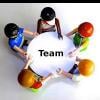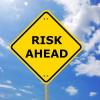Related Content
 |
How Agile Principles Help in a Remote Working Atmosphere When working remotely, teams often face high risks due to lack of communication and differences. However, when implementing agile principles, even remote teams can minimize the risks of failure. |
|
 |
The New Need for the Act of Balancing Prioritization is a skill that helps determine when and where to balance, both professionally and personally. Balancing is important when we prioritize our choices. In fact, these two attributes are so closely tied that it is important to balance our priorities and prioritize our balance. |
|
 |
Test, Test, Test Test, test, test. This is a phrase that has caught everyone’s attention this year as we grapple to mitigate COVID-19. The WHO states that testing is the only way out, as we cannot fight the pandemic blindfolded. |
|
 |
Test Teams Evaluation to Improve Effectiveness Evaluating a test team member’s abilities is crucial in recognizing deficiencies within the team, and it provides an opportunity to outline a strategy to remedy the weaknesses. Selecting the proper method for evaluating the test team’s abilities is vital. |
|
 |
How to Run a Productive and Effective Remote Team With remote work becoming the norm, now is a good time to consider how you can help your team do their best without causing burnout. Fortunately, remote work may actually improve productivity. After all, it's one of the factors that largely contribute to job satisfaction. |
|
 |
A Physical Metaphor for Quick Fixes and Root Cause Analysis If you deal with legacy code you’ve likely found yourself struggling to debug and fix a mysterious, intermittent problem. Along the way you may have discovered some code that didn’t quite make sense. |
|
 |
Schedule Risk Analysis Building schedules for complex projects is challenging. While the results are never perfect, credible schedules are a useful communication and coordination device. Incredible schedules are a dangerous waste of time and energy that damage a project manager’s credibility and cost an enterprise a fortune. |
|
 |
3 Critical Considerations for Technical Due Diligence Technical due diligence is the process of verifying a company’s technical capabilities, quality, and processes. It is typically performed by investors or buyers before a contract. There are many aspects you can investigate, but three are crucial: a code review, security evaluation, and open source components compliance. |








